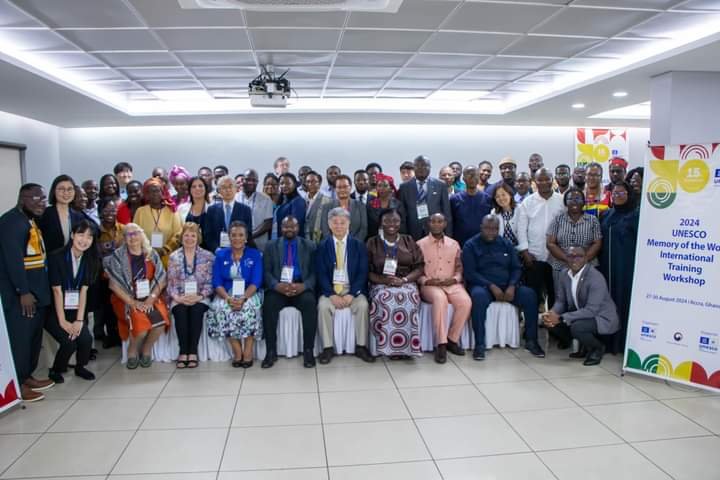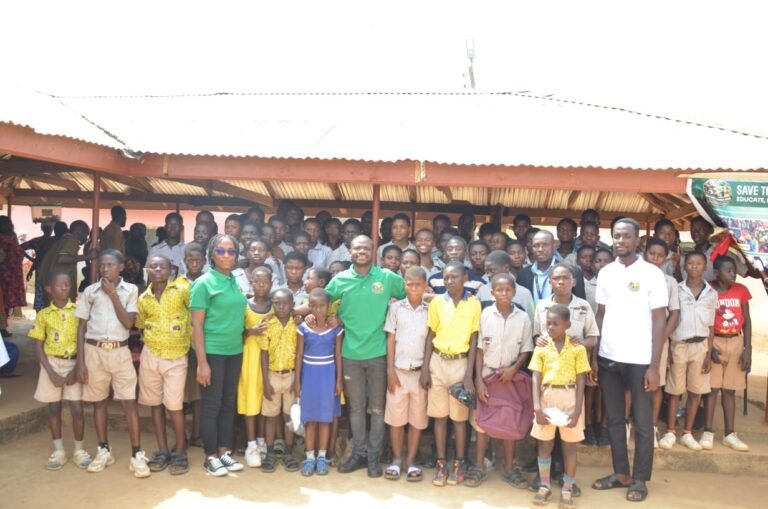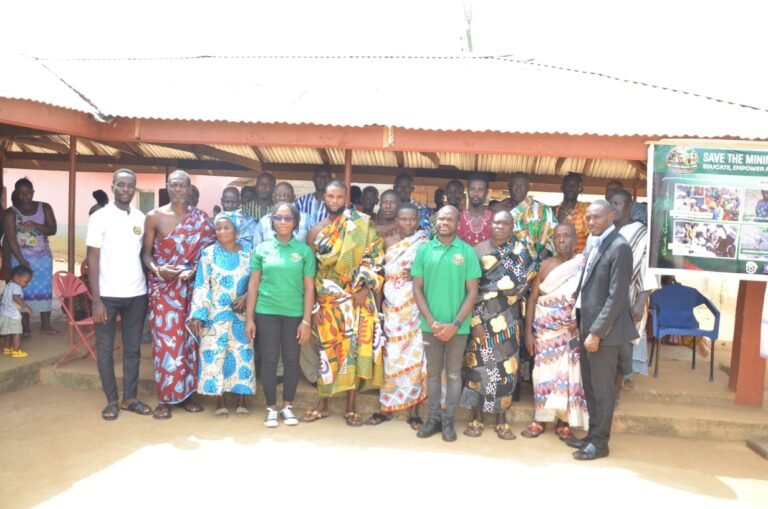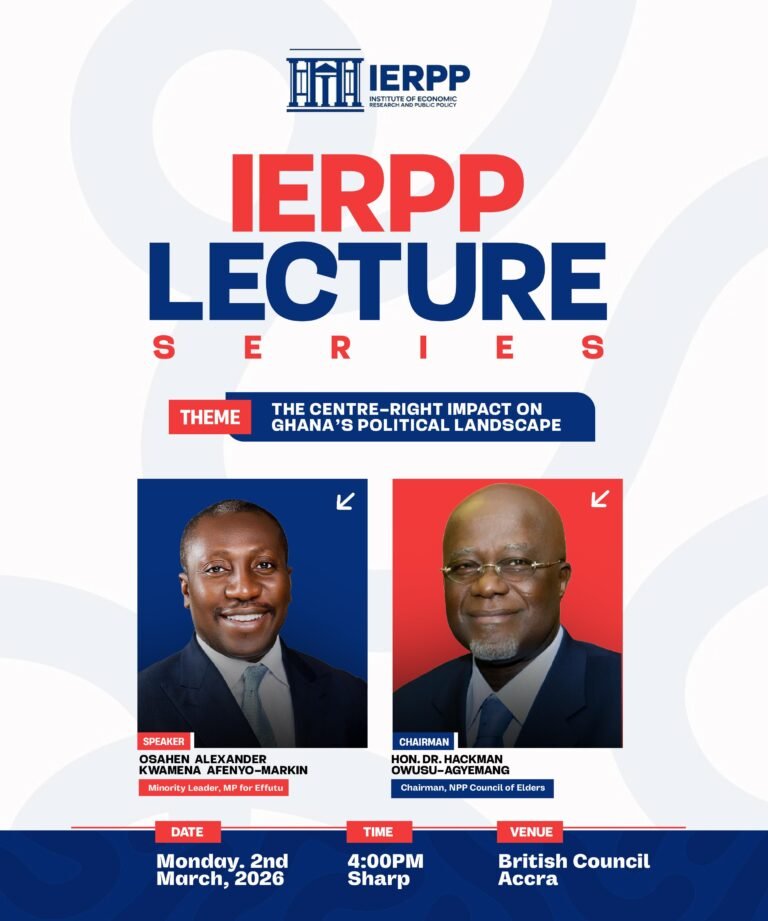
 By Bright Philip Donkor
By Bright Philip Donkor
The Secretary-General of the Ghana Commission for UNESCO, Ama Serwah Nerquaye-Tetteh, has observed that Ghana is making significant strides in the realm of documentary heritage. She has accordingly outlined the country’s progressive efforts over the years to enhance the preservation and promotion of its documentary heritage.
She made the observation during the “2024 UNESCO Memory of the World International Training Workshop for Partner Countries’ Capacity Building” held at the Oak Plaza Hotel in Accra yesterday. The 3-day workshop, which is under the theme “Women in Focus: Preserving Africa’s Documentary Legacy”, is expected to end on Friday, August 30, 2024.
 Achievements
Achievements
Madam Nerquaye-Tetteh said Ghana had made substantial advancements in this domain, stressing the nation’s commitment to safeguarding its historical and cultural records.
She pointed out that, in 2021, a pivotal step was taken with the establishment of the Ghana National Committee for UNESCO Memory of the World Programme. According to her, this committee was formed to serve as the primary governing body overseeing documentary heritage issues within the country.
She indicated that the workshop serves as a critical platform for brainstorming and strategizing on best practices for documentation and conservation. “Participants would explore innovative approaches to digitization, archival management, and public access, with the goal of ensuring that Ghana’s valuable historical documents and records are protected for future generations,” she added.
 Madam Nerquaye-Tetteh emphasised that these efforts were part of a broader vision to fortify Ghana’s position as a leader in documentary heritage preservation. She noted that the preservation of documentary heritage was not only about safeguarding the past, but also about empowering future generations with access to their cultural and historical roots.
Madam Nerquaye-Tetteh emphasised that these efforts were part of a broader vision to fortify Ghana’s position as a leader in documentary heritage preservation. She noted that the preservation of documentary heritage was not only about safeguarding the past, but also about empowering future generations with access to their cultural and historical roots.
She thanked UNESCO and the Korean National Commission for UNESCO for the exciting opportunity to host the workshop in Ghana. “To all our experts here participating in this workshop, let us continue to embrace the spirit of UNESCO’s mission- fostering peace, eradicating poverty, promoting sustainable development celebrating cultural diversity and building inclusive knowledge societies. Together, we can ensure that documentary heritage is preserved, appreciated, and passed down through the generations,” she stressed.
 Milestone
Milestone
Kyung Koo Han, Secretary-General of the Korean National Commission for UNESCO, said this year marks a significant milestone as we celebrate the 15th anniversary of this workshop series.
“Since its inception in 2009, the Korean National Commission for UNESCO has organized 14 workshops, engaging participants from 128 countries. These efforts have contributed to 12 successful inscriptions on the international register and 11 on the regional registers of the UNESCO Memory of the World
(MoW) Programme,” he stated.
 Han noted the growing demand for the workshops, with only a third of this year’s applicants able to be invited. He highlighted the workshops’ role in showcasing the power of stories and preserving documentary heritage, which he described as “treasure chests filled with the priceless jewels of human civilization.”
Han noted the growing demand for the workshops, with only a third of this year’s applicants able to be invited. He highlighted the workshops’ role in showcasing the power of stories and preserving documentary heritage, which he described as “treasure chests filled with the priceless jewels of human civilization.”
He also emphasised the importance of preserving African heritage, adding that Africa’s rich cultural history was crucial for a comprehensive understanding of global history.
“By safeguarding Africa’s documentary heritage, we are bringing those stories to light. Stories that have been forgotten or overlooked for too long. And by doing so, we give them the global recognition they deserve. This is about strengthening Africa’s legacy, celebrating its diversity, and giving future generations the chance to embrace their history with pride,” he noted.

Commendation
Mr. Fackson Abanda, Head of Unit for Documentary, Heritage, Memory of the World Secretariat, UNESCO Headquarters, Paris, on behalf of Mr. Edmond Moukala, UNESCO’s Representative to Ghana, commended the National Commissions for UNESCO in both Ghana and Korea for putting up this all-important and sterling event together.
He stated that it was through this programme that “we acknowledge and protect the documents and artifacts that chronicle human experiences across time and space.” “Interestingly, today we are here to highlight the indispensable role that our women have played in this critical endeavor. Women have always been at the forefront and at the heart of preserving, documenting, and sharing knowledge,” he added.
 He emphasised even though their contributions to documentary heritage were profound, they were often not given the impetus they deserved, not given recognition, underrepresented, and underappreciated.
He emphasised even though their contributions to documentary heritage were profound, they were often not given the impetus they deserved, not given recognition, underrepresented, and underappreciated.
“History records that women have been both the creators and custodians of documents that shaped our understanding of history and culture. Consider, for example, the extensive work of women in preserving oral histories. Across cultures, women have been the keepers of stories, traditions, and languages. They have transmitted these narratives through generations, ensuring that our shared heritage does not go extinct,” he acknowledged.






